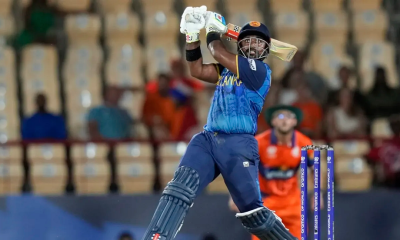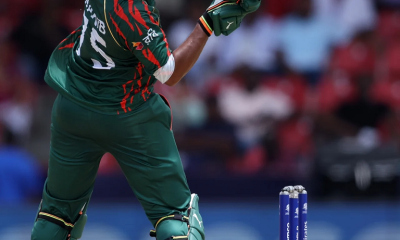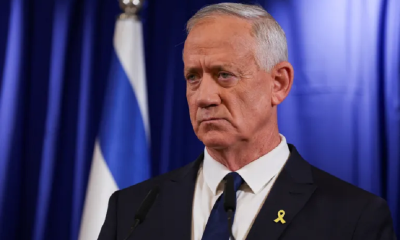Foreign News
ICJ orders Israel to halt its offensive on Rafah, Gaza in new ruling
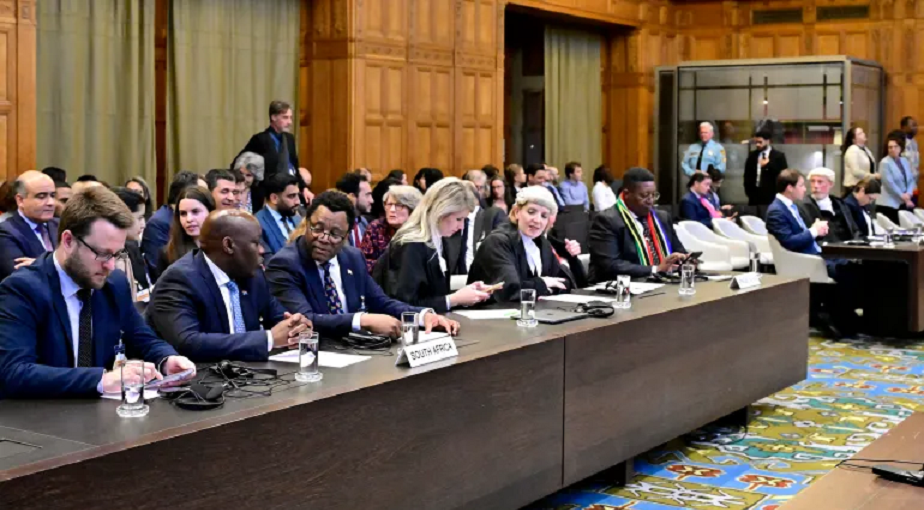
Judges at the top United Nations court ordered Israel to halt its offensive in the southern Gaza city of Rafah and withdraw from the enclave, in a case brought by South Africa accusing Israel of genocide, citing “immense risk” to the Palestinian population.
Friday’s decision marked the third time this year the 15-judge panel has issued preliminary orders seeking to rein in the death toll and alleviate humanitarian suffering in Gaza. While orders are legally binding, the court has no police to enforce them.
Reading out a ruling by the International Court of Justice or World Court, the body’s president, Nawaf Salam, said provisional measures ordered by the court in March did not fully address the situation in the besieged Palestinian enclave now, and conditions had been met for a new emergency order.
Israel must “immediately halt its military offensive, and any other action in the Rafah Governorate, which may inflict on the Palestinian group in Gaza conditions of life that could bring about its physical destruction in whole or in part,” Salam said, and called the humanitarian situation in Rafah “disastrous”.

South Africa’s lawyers had asked the ICJ in The Hague last week to impose emergency measures, saying Israel’s attacks on Rafah must be stopped to ensure the survival of the Palestinian people.
Reporting from The Hague, in the Netherlands, Al Jazeera’s Step Vaessen said that 13 of the 15 ICJ judges agreed to call on Israel to halt its assault.
“Salam said 800,000 are displaced, and that he doesn’t believe Israel’s word that they are provided safety and humanitarian access. He said there was no evidence of that,” she noted.
“That’s why the court has now made a very strong order that Israel should immediately stop its offensive and military operation in Rafah and withdraw its troops from there. He also made a ruling on border crossings, that they must be reopened as soon as possible to get humanitarian aid in,” Vaessen added.
She said that the judge also stressed that observers from the UN have to get access as soon as possible to make sure that no evidence of any possible war crimes disappear from the region.
The ICJ has also ordered Israel to report back to the court within one month over its progress in applying measures ordered by the institution.
Israel launched its assault on the southern city of Rafah this month, forcing hundreds of thousands of Palestinians to flee a city that had become a refuge to about half of the population’s 2.3 million people.
Rafah, on Gaza’s southern edge, has also been the main route in for aid, and international organisations say the Israeli operation has cut off the enclave and raised the risk of famine.
Reporting from Deir el-Balah in central Gaza, Al Jazeera’s Hind Al Khoudary said that people in the Gaza Strip have not yet reacted to the ICJ ruling since many of them do not have internet connection.
“People here in the Gaza Strip are currently trying to feed themselves … after being constantly displaced. So people are not very well aware of what’s going on. They’re asking journalists … if there is anything positive,” she said.
Khoudary added that, as journalists in Gaza, they do not want to give people in the region false hope and are waiting to hear more information about how the ICJ’s ruling will be implemented in Rafah, where the situation remains tense.
The Palestinian Authority has welcomed the decision on Friday from the International Court of Justice, saying it represents an international consensus to end the war on the Gaza Strip, Palestinian presidential spokesman Nabil Abu Rudeina told the Reuters news agency.
Shortly after the ruling, Israel’s finance minister, Bezalel Smotrich said on the social media platform X that “the State of Israel is at war for its existence.”
“Those who demand that the State of Israel stop the war, demand that it decree itself to cease to exist. We will not agree to that,” he said.
“We continue to fight for ourselves and for the entire free world. History will judge who today stood by the Nazis of Hamas and ISIS [ISIL],” he added.
Reporting from Amman, Jordan, Al Jazeera’s Imran Khan said that diplomatic sources have told Israel’s Channel 13 that Prime Minister Benjamin Netanyahu will convene an emergency meeting.
“Foreign Minister Israel Katz, war cabinet minister Benny Gantz and the government’s judicial adviser will be in the meeting. This is how seriously they are taking this ruling,” Khan said.
“We are hearing from political sources speaking to local media that Israel will not respond to the decision of the court, both politically or militarily,” he added.
According to war crimes prosecutor Reed Brody, the ICJ has stepped up to confront the reality in the Gaza Strip.
“I’m really impressed, first of all by South Africa’s tenacity and perseverance and coming back to the court. And the court has responded almost unanimously,” he told Al Jazeera.
Brody noted that South Africa has been asking for an order for Israel to stop its military offensive since the start of the war on Gaza, with the court saying it cannot make a move because Hamas and the Palestinian side is not present on the stand.
“But that’s what they have finally chosen to do here and it’s a testament to this court and what it does,” he said.
“Together with the decision by the ICC prosecutor [to recommend arrest warrants against top Israeli officials], it is a real one-two legal punch.”
against top Israeli officials], it is a real one-two legal punch.”
The ICJ, also known as the World Court, is the highest UN body for hearing disputes between states. Its rulings are final and binding, but have been ignored in the past.
In a highly charged ruling in January, the court ordered Israel to do everything in its power to prevent genocidal acts in Gaza, but stopped short of ordering a halt in the fighting.
Israel has repeatedly dismissed the case’s accusations of genocide as baseless, arguing in court that its operations in Gaza are self-defence and targeted at Hamas fighters who attacked Israel on October 7.
(Aljazeera)
Foreign News
China executes four more Myanmar mafia members
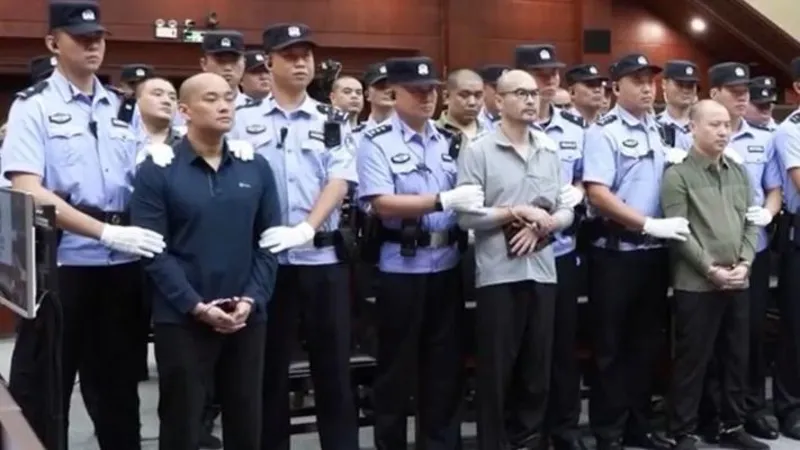
China has executed four members of the Bai family mafia, one of the notorious dynasties that ran scam centres in Myanmar, state media report.
They were among 21 of the family’s members and associates who were convicted of fraud, homicide, injury and other crimes by a court in Guangdong province.
Last November the court sentenced five of them to death including the clan’s patriarch Bai Suocheng, who died of illness after his conviction, state media reported.
Last week, China executed 11 members of the Ming family mafia as part of its crackdown on scam operations in South East Asia that have entrapped thousands of Chinese victims.
For years, the Bais, Mings and several other families dominated Myanmar’s border town of Laukkaing, where they ran casinos, red-light districts and cyberscam operations.
Among the clans, the Bais were “number one”, Bai Suocheng’s son previously told state media after he was detained.
The Bais, who controlled their own militia, established 41 compounds to house cyberscam activities and casinos, authorities said. Within the walls of those compounds was a culture of violence, where beatings and torture were routine.
The Bai family’s criminal activities led to the deaths of six Chinese citizens, the suicide of one person and multiple injuries, the court said.
The Bais rose to power in Laukkaing in the early 2000s after the town’s then warlord was ousted in a military operation led by Min Aung Hlaing – who now leads Myanmar’s military government.
The military leader had been looking for co-operative allies, and Bai Suocheng – then a deputy of the warlord – fitted the bill.
But the families’ empires crashed in 2023, when Beijing became frustrated by the Myanmar military’s inaction on the scam operations and tacitly backed an offensive by ethnic insurgents in the area, which marked a turning point in Myanmar’s civil war.
That led to the capture of the scam mafias and their members were handed to Beijing.
In China, they became subjects of state documentaries which emphasised Chinese authorities’ resolve to eradicate the scam networks.
With these recent executions Beijing appears to be sending a message of deterrence to would-be scammers.
Hundreds of thousands of people have been trafficked to run online scams in Myanmar and elsewhere in South East Asia, according to estimates by the United Nations.
Among them are thousands of Chinese people, and their victims who they swindle billions of dollars from are mainly Chinese as well.
(BBC)
Foreign News
US government partially shuts down despite last minute funding deal

The US federal government has partially shutdown despite a last-ditch funding deal approved by the Senate.
The funding lapse began at midnight US eastern time (05:00 GMT) on Saturday, hours after senators agreed to fund most agencies until September. The bill includes just two weeks’ funding for the Department of Homeland Security, which oversees immigration enforcement, instead of shutting it down entirely.
The bill has yet to be approved by the House of Representatives, which is out of session.
US President Donald Trump struck the deal with Democrats after they refused to give more funding for immigration enforcement following the fatal shooting of two US citizens in Minneapolis by federal agents.
It is the second such government shutdown in the past year and comes just 11 weeks after the end of the previous funding impasse that lasted 43 days, the longest in US history.
That shutdown in 2025, which spanned 1 October to 14 November, had widespread impacts on essential government services including air travel and left hundreds of thousands of federal workers without pay for weeks.
This shutdown, however, is unlikely to be that long or widespread as the House of Representatives is set to be back in session on Monday.
The White House, though, has directed several agencies, including the departments of transportation, education and defence to execute shutdown plans.
“Employees should report to work for their next regularly scheduled tour of duty to undertake orderly shutdown activities,” a White House memo to agencies said. “It is our hope that this lapse will be short.”
Trump has urged Republicans, who hold the majority of seats in the US House, to vote for the deal.
Lawmakers plan to use the fortnight in which the DHS will continue to be funded to negotiate a deal. Democrats want that deal to include new policies for immigration enforcement agents.
“We need to rein in ICE and end the violence,” Senate Minority Leader Chuck Schumer said referring to Immigration and Customs Enforcement.
“That means ending roving patrols. It means requiring rules, oversight, and judicial warrants… Masks need to come off, cameras need to stay on, and officers need visible identification. No secret police.”
Both Republican and Democratic lawmakers have sharply criticised tactics used by immigration agents in the wake of the fatal shooting of Alex Pretti in Minneapolis last weekend.
Pretti, an intensive care nurse, was shot by a US Border Patrol agent after an altercation in which several agents tried to restrain him.
On Friday, the Justice Department launched a civil rights investigation into the shooting.
[BBC]
Foreign News
Heavy gunfire and blasts heard near airport in Niger’s capital
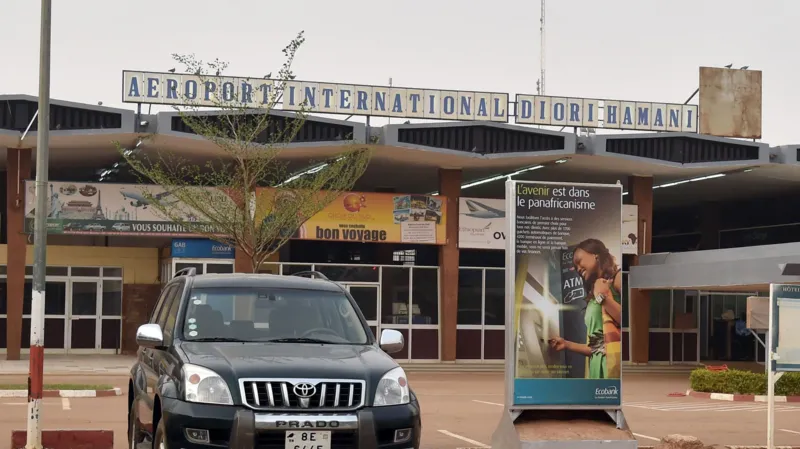
Sustained heavy gunfire and loud explosions have been heard in Niger near the international airport outside the capital, Niamey.
Multiple eyewitness accounts and videos showed air defence systems apparently engaging unidentified projectiles in the early hours of Thursday.
The situation later calmed down, reports say, with an official reportedly saying the situation was now under control, without elaborating.
It is not clear what caused the blasts, or if there were any casualties. There has been no official statement from the military government.
The gunfire and blasts began shortly after midnight, according to residents of a neighbourhood near the Diori Hamani International Airport, the AFP news agency reports. They said calm returned after two hours.
The airport houses an air force base and is located about 10km (six miles) from the presidential palace.
Niger is led by Abdourahamane Tiani who seized power in a 2023 coup that ousted the country’s elected civilian president.
Like its neighbours Burkina Faso and Mali, the country has been fighting jihadist groups who have carried out deadly attacks across the region.
It is also a major producer of uranium.
A huge uranium shipment destined for export has been stuck at the airport amid unresolved legal and diplomatic complications with France after the military government nationalised the country’s uranium mines.
“The situation is under control. There is no need to worry,” the Anadolu news agency quoted a Foreign Affairs ministry official as saying, without elaborating.
The official told the agency they were trying to determine whether the gunfire was linked to the uranium shipment.
[BBC]
-

 Opinion6 days ago
Opinion6 days agoSri Lanka, the Stars,and statesmen
-

 Business7 days ago
Business7 days agoClimate risks, poverty, and recovery financing in focus at CEPA policy panel
-

 Business5 days ago
Business5 days agoHayleys Mobility ushering in a new era of premium sustainable mobility
-

 Business2 days ago
Business2 days agoSLIM-Kantar People’s Awards 2026 to recognise Sri Lanka’s most trusted brands and personalities
-

 Business5 days ago
Business5 days agoAdvice Lab unveils new 13,000+ sqft office, marking major expansion in financial services BPO to Australia
-

 Business5 days ago
Business5 days agoArpico NextGen Mattress gains recognition for innovation
-

 Business4 days ago
Business4 days agoAltair issues over 100+ title deeds post ownership change
-

 Business4 days ago
Business4 days agoSri Lanka opens first country pavilion at London exhibition


